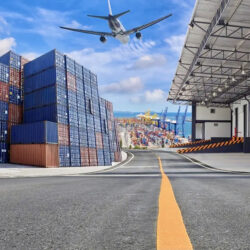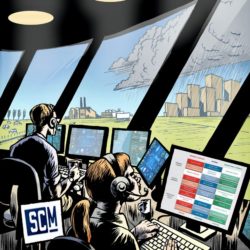Companies search for alternative suppliers as way of spreading supply chain risks

The COVID-19 pandemic created some degree of supply chain disruption for 56% of companies, according to certification body DNV GL Business Assurance’s survey of 1,142 organizations. The main causes of disruption were delays in supplies (45%), logistic issues (34%) and limitations to international trade (24%). Countless companies are now exploring alternative suppliers.
As a result of the disruption, more than half (57%) of organizations are now planning to strengthen and diversify their supply chain by working with new suppliers. They are also trying to mitigate the impact of the pandemic through digitalization (36%), revised supplier criteria (36%) and a review of stock management practices (36%).
“With severe effects such as reduced sales and revenue (57%), reduced production (39%) and increased operational costs (35%), it has been extremely challenging for many organizations to continue doing business. It is not surprising that the strategic change most companies have identified is to spread their supply chain risks by diversifying their supplier base, providing them more than one leg to stand on in the future,” comments Luca Crisciotti, CEO of DNV GL Business Assurance.
Active and constructive collaboration
In addition, the survey shows that organizations are working actively in a collaborative and constructive way with existing suppliers to find pragmatic solutions. For example, 77% of organizations identify and assess risks, 45% identify mitigating actions, 42% implement mitigating actions and 50% monitor implemented actions.
This indicates a level of maturity in the management of existing suppliers, according to DNV GL. At the same time, only 26% have control of indirect suppliers. DNV GL points out that knowing one’s suppliers end to end is essential in order to build a complete and resilient response at all times, especially during the current pandemic. COVID-19 has put supply chain risk management higher on the agenda, and organizations are being forced to increase their maturity and improve their supply chain resilience.
Resilience
“Every issue must be tackled head on and quickly. Resilience is less about maintaining a steady state; it is about being able to adopt an agile and dynamic approach. COVID-19 is forcing companies to reimagine resilience, to change and adapt. It is good to see that companies are learning and moving in the right direction,” states Crisciotti.










